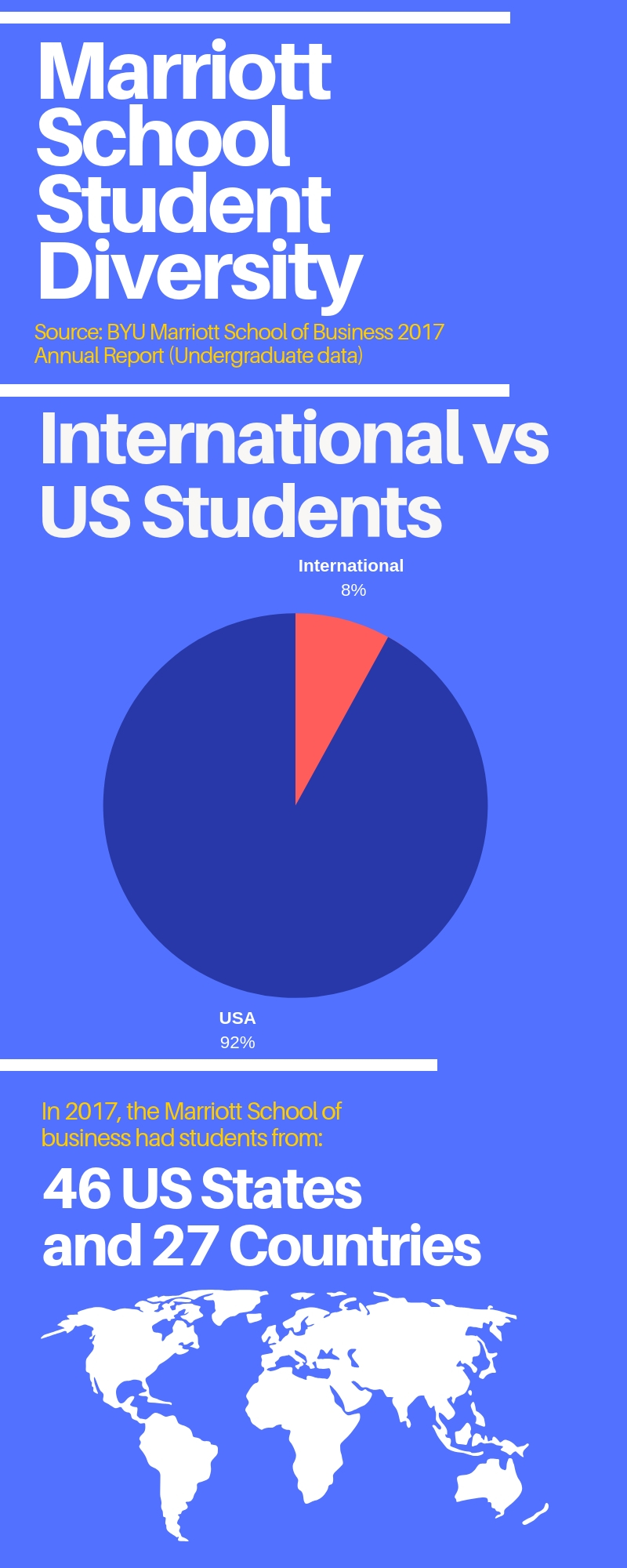
It was 4 a.m. and Juan Camargo was up early for his custodial job, yearning to be home in Colombia. There had been so many struggles since he left his motherland, and Juan realized he needed to make a change in how he was pursuing his education. Things improved as he became more and more involved with activities.
BYU is home to over 1,530 international students from 105 countries who have come to earn both undergraduate and graduate degrees. This large number only accounts for 4 percent of the total number of students enrolled in BYU, according to BYU News.
Being a minority can come with challenges such as marginalization and discrimination, according to an American Psychological Association’s fact sheet. For BYU students, Camila and Juan Camargo and Marcus Tsukuda, leaving home to come to another country added its own unique set of difficulties.
Challenges for the students included language barriers and cultural adjustments. These students say they have felt these hardships, overcome them and excelled as they have come to study in the United States.

Camila, from Bogota, Colombia, is among those who journeyed to Utah for higher education. She received an undergraduate degree from BYU-Idaho and chose to pursue an MBA at BYU. She decided to attend BYU because she enjoys the gospel-centered educational system.
“Working in Colombia, I got exposed to many situations where I needed to make hard calls and take a stand,” Camila said. “Having an education where the principles of the gospel play a center role helps you make the hard calls when you are in a working environment.”
Camila said she faced difficulties letting go of the employees, company and responsibilities she held while in Colombia. One of these challenges has been the difference in culture between Colombia and the United States.
“Colombians are more open and warm. I really miss saying hello with a hug and a kiss on the cheek. Reaching out and making physical touch is also very natural in Colombia,” she said. “Now being aware that those things are not OK makes me feel a little constrained and on the parole, not to ‘make a mistake.’”
Despite the cultural changes, Camila said she feels she has a good grasp on the language and has made amazing friends. Regardless, Camila said she hopes to take the tools she has learned here to make a difference in Colombia.
BYU MBA student Marcus Tsukuda, from São Paulo, Brazil, is specializing in entrepreneurship. He said he would like to have a career in private equity or venture capital.
Tsukuda wants to go back to Brazil when he finishes his MBA in 2020 to help build up the economy. He said there is much potential for economic growth there.
“I think that Brazil is a country with a lot of opportunities and I want to navigate there and do the best I can over there,” he said.
Camila’s cousin, Juan Camargo, followed in her footsteps by traveling to the United States to receive his undergraduate degree. Juan attended BYU—Idaho where he studied before and after serving a mission in Raleigh, North Carolina. He is now a senior at BYU studying economics with a business minor.
Juan is originally from Bucaramanga, Colombia, and has a goal of returning to his motherland after he finishes his degree with the hopes of building the economy there. He said he wants to help take advantage of the agriculture potential of the country.
Tsukuda and Juan have similar goals in each of their countries. Tsukuda said he thinks economically Brazil is growing a lot, especially within the last few years. He said if someone proves they are good enough, then there is space for them in Brazilian industries. Both believe bringing in business can help their homeland economies.
“I really think a lot of social problems can be solved through business ventures and through business ideals,” he said. “Being a minority and not being a big population can feel intimidating, but at the same time can empower you and you can take advantage of the uniqueness of it.”




